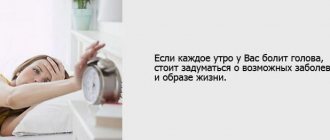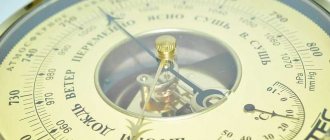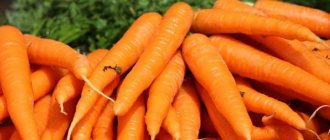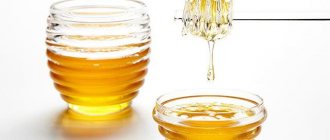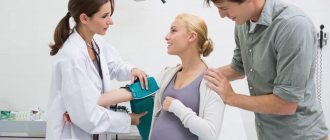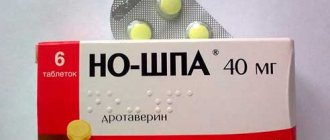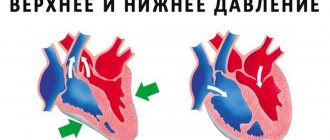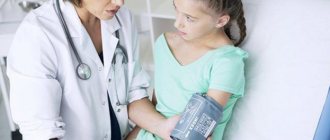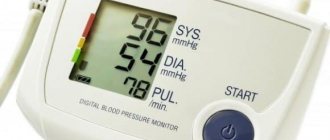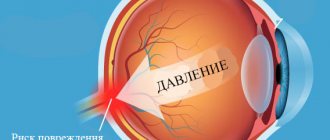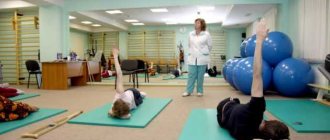The effect of foods on blood pressure
There is a medical term - postprandial or orthostatic hypotension, it refers to a systematic decrease in blood pressure that occurs almost immediately after eating. A pronounced connection between blood pressure levels and food quality is felt by older people, as well as young and middle-aged people with various pathologies.
If your pulse begins to increase after eating, you should measure your blood pressure before and after eating and consult a doctor if it systematically increases to eliminate the possibility of a hypertensive crisis.
People with hypertension have a greater dependence of blood pressure on the quality of food, especially those who are obese or have stomach or intestinal problems . Hypertensive patients who adhere to a healthy lifestyle and proper nutrition do not notice the effect of food on blood pressure. It increases in those who do not adhere to a diet:
- prefers spicy and fried dishes with a large dose of spices, which retain fluid in the tissues;
- likes to pamper himself with wine, vodka or cognac;
- washes down food with a cup of coffee or tea, which causes palpitations;
- loves cakes and buns containing fast carbohydrates.
The volume of food, frequency and time of intake affect blood pressure in hypotensive and hypertensive patients.
With hypotension, low blood pressure makes you feel worse. Weakness, increased drowsiness, fatigue and, as a consequence, bad mood appear. Hypotonic patients can eat everything that cannot be consumed if they have hypertension, and exclude foods that lower blood pressure levels.
Nutrition rules
For a person who seeks to restore health by influencing his diet, it is important to pay attention not only to the quality of products, but also to their quantity. Often, as a result of overeating, people experience pathologies of blood vessels and heart. Therefore, if a person evaluates his menu as healthy and correct, he should try to change his meal regimen, making them frequent (with a break of no more than 3 hours) and small (weighing no more than 300 grams).
First of all, he needs:
- exclude “forbidden” foods, follow a diet for hypertension;
- drink enough fluid;
- develop a diet for yourself that will eliminate high blood pressure.
Paying attention to your body often allows you to eliminate functional disorders in the functioning of its systems. Having learned to analyze what food, in what quantity, and at what temperature can provoke hypertension, you can create a menu and diet for yourself that will not cause you to feel unwell.
What products increase
A person of any age should think about reviewing their diet if their blood pressure rises after any meal or snack. Many office workers, leading a sedentary lifestyle, invigorate themselves with drinks (coffee, tea).
It is believed that they add energy and tone. If there is an increase in blood pressure throughout the day, you need to give up caffeine-containing drinks and replace them with plain water of good quality.
Any fatty food can increase blood pressure. This category includes not only products containing animal fat (pork, chicken, beef). This includes all dairy products with a high percentage of fat (cheese, cream, milk, sour cream, butter).
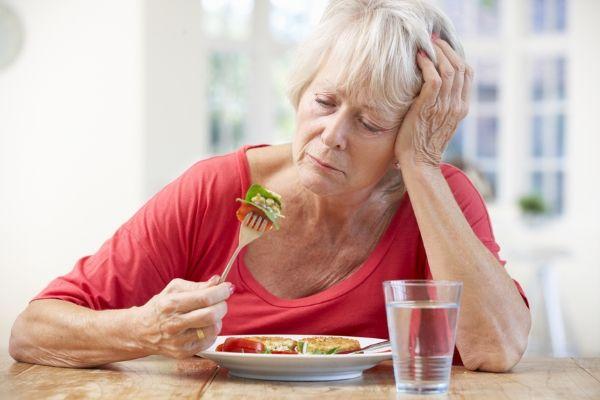
What foods to include in your diet to increase blood pressure?
A person’s blood pressure can drop after eating, so you need to worry about nutrition in advance. It doesn't hurt to eat foods that increase your blood pressure every day.
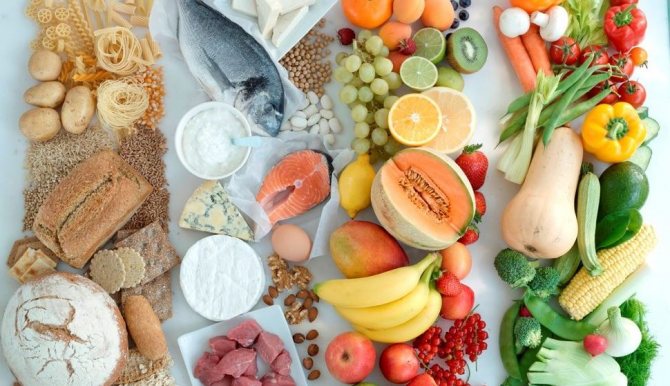
It is necessary to include a number of foods in your diet that affect blood pressure:
- Salty foods (various kinds of pickles) and salty foods, but in moderation (15-20 grams of salt per day). Sodium serves as a binding link for water in the body, leading to increased blood circulation.
- Spices in dishes increase the functionality of the endocrine glands and lead to a narrowing of the walls of blood vessels.
- Fatty foods (dairy products, meat, fish, offal) increase blood pressure through cholesterol, which impedes blood circulation in the body.
- Butter products containing high-calorie elements also normalize blood pressure.
- Products containing amino acids (nuts) and rich in starch (potatoes, rice, semolina, oats).
- Products enriched with vitamins C and B - eggs, milk, yeast, spinach, etc.
- Caffeinated drinks: coffee, cocoa, green tea, energy drinks.
- Vegetables and fruits with a tonic effect: sour apples, celery, lettuce, cabbage.
What foods lower blood pressure?
Quite often, blood pressure decreases from the same foods that cause it to increase. This is explained by the individual characteristics of the body. You can list foods that can lower blood pressure levels:
- citrus;
- raw almonds;
- spices (turmeric, cayenne pepper);
- garlic.
There are products that lower blood pressure within normal limits. These are white-fleshed potatoes, bananas, sunflower seeds and beans. Not every person understands why discomfort occurs after eating any food. Simple recommendations can help the problem:
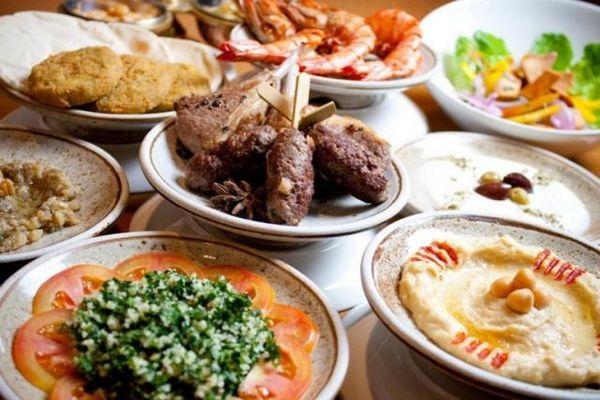
- increase the number of meals up to 5 times, reduce the size of portions;
- do not eat at night;
- increase the amount of fruits and vegetables in the diet;
- eat at the same time;
- Bake or boil foods, but do not fry.
Products that reduce blood pressure
How to reduce high blood pressure with food? First of all, adequate calcium intake is important. Its sources include dark green leafy vegetables, carrots, parsley, whole grains, and sesame seeds.
Less meat
Vegetarians have better blood pressure, so limit your intake of meat products. If you have high blood pressure, coffee, strong black tea, alcohol, and red wine are not recommended.
Garlic
Consume 3-4 cloves of garlic per day. Not recommended for stomach problems!
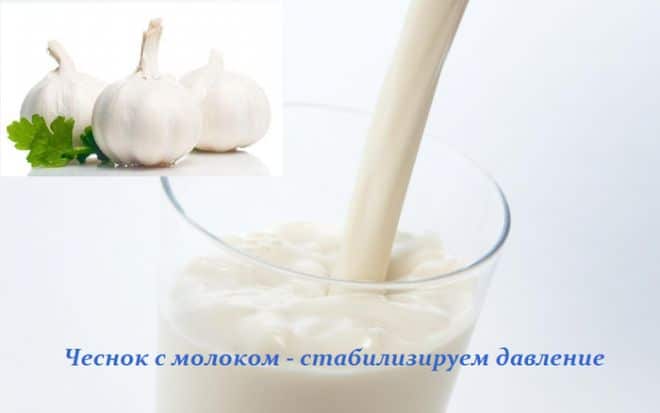
Yeast
Take 3 times a day, 1 tsp. brewer's yeast for 14 days.
Dill
To support heart function with high blood pressure, consume dill regularly.
Beets and beet juice
Add beets to salads, eat in their pure form. You can mix beet juice (1:1) with honey and take 1-2 tsp. in a day.
What products are prohibited
To rid yourself of discomfort after eating, you need to do an analysis of which foods your blood pressure starts to increase when you eat them. Doctors classify junk food as:
- pepper (red, black), all hot spices; it is a mistake to believe that pepper dilates and strengthens blood vessels;
- any food strongly seasoned with salt leads to swelling and heart rhythm disturbances;
- drinks that contain caffeine (coffee, black and green teas, cocoa), plain water brings more benefits to the body;
- beets without heat treatment, you need to limit their quantity;
- sugar and all types of baked goods containing yeast, cakes with layers of butter cream, ice cream;
- any drinks containing alcohol.
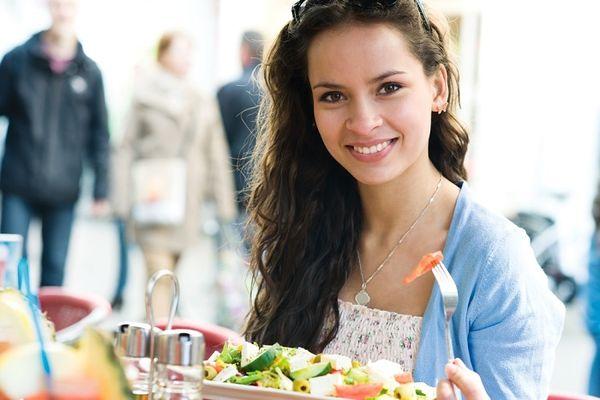
Gourmets who love to eat often suffer from increased blood pressure because they include corned beef (fish, lard, mushrooms), smoked meats, black olives, and sauerkraut in their daily menu.
Prohibited Products
First of all, you need to avoid drinking alcohol, as alcohol dehydrates the body. As for food, people suffering from low blood pressure after eating should exclude the following from their diet:
- soy and its derivatives;
- difficult to digest food;
- excessively fatty fried foods;
- synthetic additives, including sugar substitute.
- foods high in sugar and fast carbohydrates.
Causes of increased blood pressure after eating
All processes occurring in the body are interconnected. The functioning of the gastrointestinal tract affects other organs. During the digestive process, blood pressure may change. For some people this change is insignificant within the normal range, for others it exceeds the permissible deviation.
Factors that affect digestion, the condition of the heart and blood vessels include frequent stress, chronic fatigue, and sleep disturbances. Reasons that cause increased blood pressure include:
- a large percentage of fat in foods, it affects blood thickness and impairs blood flow;
- salt retains fluid in the tissues, this causes an increase in blood pressure;
- Eating foods low in fiber impairs blood quality and slows blood flow;
- Drinks containing caffeine increase blood pressure and heart rate.
The main reason for the increase in pressure is a decrease in blood flowing to the heart during the digestion of foods. Most of the blood is concentrated in the gastrointestinal tract; the digestive system needs it to digest food. Due to blood deficiency, the frequency of contractions of the heart muscles increases, blood flow slows down, and blood pressure rises.
Kidney disease can cause high blood pressure . When the kidneys cannot cope with the resulting volume of fluid, pressure on the walls of blood vessels increases. For this reason, the heart's work becomes more intense, which causes an increase in blood pressure.
Reasons why blood pressure decreases after eating
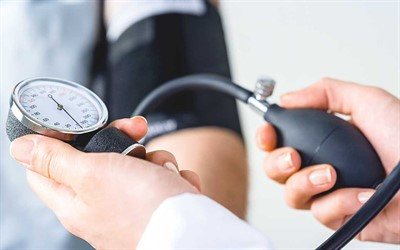
There are a group of factors that provoke a decrease in blood pressure:
- Disturbances of the endocrine system.
- Renal failure (especially after hemodialysis).
- Deviations in mental development: psychopathy, neurasthenia and other conditions.
- Age-related impairments in the perception of nerve impulses that occur after 65 years.
- Disorder in the functioning of the nervous system due to disorders of brain activity (Alzheimer's disease, Parkinson's disease).
Symptoms of high blood pressure after eating
The diagnosis of “gastrocardiac syndrome” is made if blood pressure rises almost immediately after eating. Its symptoms:
- pulsation and sensation of tinnitus;
- lack of air, difficulty breathing;
- poor sleep;
- tachycardia;
- feeling dizzy;
- Strong headache;
- intestinal colic and loose stools;
- cardiopalmus.
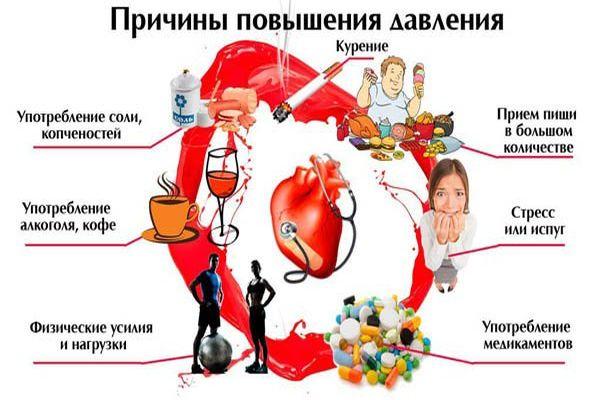
This is a list of general symptoms; they are individual for each person. Many people do not analyze their condition and consider such manifestations to be the norm or a symptom of some disease.
Increased blood pressure after eating: the main reasons, how to prevent surges, advice from doctors
Blood pressure is the force with which the blood flow acts on the walls of blood vessels. Its indicators determine the functioning of vital systems and the entire organism as a whole. Regular contraction of the heart muscle (about 70 times per minute) pumps blood through the arteries, veins, and capillaries, supplying all organs with oxygen and essential nutrients.
Indicators of normal pressure, on average, are 120/80 mm Hg. Art. Its magnitude largely depends on the degree of elasticity of the blood vessels.
They can be destroyed under high pressure. This occurs as a result of the accumulation of cholesterol plaques on their inner walls. A problem arises: disruption of normal blood flow.
Hence the risk of developing a wide variety of diseases.
One of the factors that causes blood pressure to rise is stress. Another important one is hereditary predisposition. Not the least role is played by the influence of the environment.
But a person, as a rule, is unable to influence all of the above circumstances. Another thing is food. It turns out that it can also provoke a strong surge in blood pressure.
But in this case there is an opportunity to prevent this.
Causes of increased blood pressure after eating
A healthy person is unlikely to feel changes after a meal that would suggest using a blood pressure monitor. Another thing is hypertensive. Its systems are more sensitive to any external and internal changes. It is important for him to control both the quality and quantity of what he eats, since blood pressure increases after eating for the following reasons:
- One large meal;
- Eating foods that do not combine with each other;
- Including “heavy” dishes in the diet;
- Eating foods containing excessive amounts of salt;
- Alcohol abuse.
Regarding the volume of food, it is especially important for people suffering from hypertension not to overeat. The fact is that with enlargement of the digestive organs, greater blood flow is required. In this regard, the load on the heart increases. Contractions are becoming more frequent.
The result is increased blood pressure. That is why it is recommended to eat often, but little by little. Five or six meals a day in small portions is the best option for hypertensive patients. And the main thing is not to load your stomach in the evening. You should have dinner no later than two hours before bedtime.
Your blood pressure will certainly “jump” after eating if the food is very fatty and high in calories. Animal fat increases cholesterol levels in the blood. Baked goods and sweets have an adverse effect on hormonal levels and create a feeling of heaviness in the stomach.
Fried foods, fatty sausages, cheeses, cream and sour cream, as well as cakes and pastries are all extremely undesirable excesses for a hypertensive patient. To process such a “cargo”, more oxygen is required.
The consequence of this is an additional load on the heart muscle, then on the blood vessels, and as a result, pressure increases.
It is also recommended to exclude from the diet pickles, marinades, smoked foods, in short, foods with a high salt content. Their use is fraught with the accumulation of fluid in the body.
At the same time, blood circulation sharply increases, which causes additional stress on the heart. In addition, swelling of the cells lining the inside of the walls of blood vessels occurs. Their throughput is reduced.
This is why pressure increases.
Symptoms of high blood pressure
Signs of high blood pressure are not always pronounced. They are directly dependent on weight and age, the existence of other diseases, and the characteristics of a particular organism.
But the presence of several of them at once increases the likelihood of disease. The following are definitely worth paying attention to:
- Dizziness, chills, nausea.
- Drowsiness, headache.
- Decreased performance, feeling of rapid fatigue.
- Anxiety, nervousness.
- Increased heart rate, tinnitus;
- Nosebleeds, fever.
- Shortness of breath even with slight physical exertion.
- Swelling.
- Redness of the face, numbness of fingers and toes.
- Severe loss of coordination of movements.
How to prevent a surge in blood pressure after eating?
Shocking statistics! Hypertension is the most common disease of the cardiovascular system. It has been established that 20-30% of the adult population suffer from it. With age, the prevalence of the disease increases and reaches 50-65%. The consequences of high blood pressure are known to everyone: these are irreversible damage to various organs (heart, brain, kidneys, blood vessels, fundus of the eye).
In later stages, coordination is impaired, weakness appears in the arms and legs, vision deteriorates, memory and intelligence are significantly reduced, and a stroke can be triggered. In order to avoid complications and operations, people, taught by bitter experience, use...
Since the work of the cardiovascular system and the gastrointestinal tract are interconnected, changes in blood pressure after eating are understandable. For the process of food digestion, blood flow into the gastrointestinal tract increases. Accordingly, its flow to the heart decreases.
So how can you eat to cause less damage to your body? Here are some tips to ensure that eating is rewarding, not worrying.
- You should eat food slowly, measuredly, in a calm environment.
- Avoid watching television and listening to the news. Only pleasant music is allowed.
- Consume small portions several times a day, avoiding overeating.
- Each serving should contain a sufficient amount of plant fiber and vitamins.
- Be sure to eat foods containing large amounts of potassium and magnesium. These include nuts, dairy products, and legumes. (The ideal option is to consult a specialist to prescribe a therapeutic diet.)
- Avoid fried foods and fast food.
- Among the harmless drinks are: dried fruit compote, fruit and vegetable juices, tea with ginger and viburnum.
In general, you should listen to your body more carefully. A signal will definitely follow if the product is not suitable. In this case, you don’t need to finish eating it so that it doesn’t disappear. It is better, if it is impossible to exclude it from the diet completely, then at least reduce its consumption to a minimum.
How to prevent high blood pressure?
To "force" your blood pressure to drop after eating, you can do the following:
- Regularly consume cranberries, blueberries, and black currants. One of the properties of berries is to prevent the formation of cholesterol plaques and blood clots in blood vessels. This makes them more durable and elastic. Another effect is a diuretic, which greatly helps lower blood pressure.
- You can lower blood pressure by eating spinach, bananas, citrus fruits, and sunflower seeds. These are foods rich in magnesium, which has a positive effect on the functioning of the heart and digestive system.
- Instead of salt, it is advisable to use special substitutes. The bottom line is this: salt is mixed in a 1:1 ratio with a set of spices - ginger, coriander, turmeric, garlic, pepper, horseradish. The lack of salt is compensated by the aroma and taste of seasonings.
- It is imperative to include foods containing Omega-3 fatty acids in your diet. These include: fish and seafood, flaxseed oil, sprouted wheat, walnuts. With their help, you can lower the level of cholesterol in the blood, resulting in a drop in blood pressure.
Thus, it is possible to prevent blood pressure from rising after eating. You just need to have desire and use willpower.
Source:
Does blood pressure and pulse rise after eating in a healthy person?
- An increase in blood pressure after eating and an unexpectedly high pulse is a reason to think about your lifestyle, eating habits and daily routine.
- These factors not only affect the general condition of the body, but can also contribute to the occurrence of many diseases.
- So, some people experience a sharp rise in blood pressure after eating.
Symptoms of increased blood pressure after eating
Many people are familiar with the situation when blood pressure rises after eating. This does not happen very often or only in some cases.
However, there are signs that you definitely need to pay attention to, as they can indicate serious problems in the functioning of the body. The main symptoms that appear after eating in people prone to high blood pressure are the following:
- weakness and feeling of fatigue;
- headache;
- increased heart rate;
- unexpected dizziness;
- heavy sweating even without physical activity;
- breathing problems, shortness of breath;
- abdominal pain (often accompanied by attacks of nausea).
If one or more symptoms occur together, you should contact your primary care physician to be examined. This will prevent serious complications such as stroke or heart attack.
Causes of increased pressure
But what causes these unpleasant symptoms?
The reasons that cause increased blood pressure after eating may be the following:
- Aging of the human body is one of the main factors. Changes in human physiology, a decrease in the speed of nerve impulses coming from the central nervous system, a decrease in the elasticity of blood vessels. All this leads to processes that increase or decrease blood pressure.
- Bad habits (alcohol and smoking) are also one of the important factors that provoke the development of serious diseases.
- Stress and frequent worries also cause hypertension.
- Wrong eating habits: too salty and fatty foods; low consumption of vegetables and fruits; drinking large quantities of coffee and tea (especially green tea, since it contains more caffeine than coffee); addiction to high-calorie foods (buns, cakes, sweets).
- Diseases associated with the endocrine system can also provoke a decrease or increase in blood pressure. Since all systems in the human body are closely interconnected, a defeat in one immediately affects the functioning of another. For example, it was found that pressure surges after eating occur quite often in people suffering from Alzheimer's and Parkinson's diseases.
- People with mental illness may also suffer from hypertension.
Tachycardia after eating
Tachycardia is a sudden increase in the number of heartbeats. We are talking about 90 or more contractions per minute.
Most often, the cause of tachycardia after eating is simple and habitual overeating. A person who has eaten very heavily creates a greater load on the heart, which is the reason for the increased heart rate.
But it may happen that such a symptom is also a sign of a serious illness. It sometimes indicates diabetes mellitus, problems with the digestive system, heart disease, nervous system disorders, and thyroid pathology. High blood pressure after lunch can also cause heart palpitations.
Source: //dp3.ru/sosudy/prichiny-povysheniya-ad-posle-priema-pishhi.html
How to make a proper diet
First of all, you need to control your diet, give up dry snacks and meals at night in order to get rid of unpleasant symptoms (rapid heart rate, increased blood pressure) associated with food intake.
To improve your well-being and eliminate the influence of foods on blood pressure, you should review your menu and take measures to change it:
- eat foods that improve digestion (fresh peas, bran, cabbage, fresh carrots);
- reduce consumption of caffeinated drinks;
- include in the diet foods that normalize blood pressure (pumpkin, nuts, potatoes, spinach);
- Be sure to drink water (1.5 liters per day).
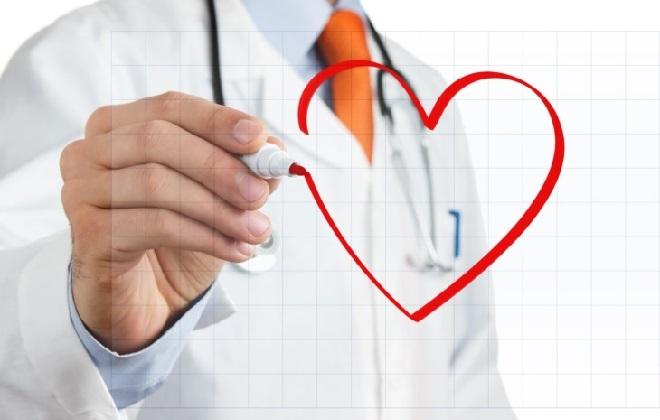
In this case, it is necessary to consult a therapist to exclude the influence of other factors related to the state of health.
Blood pressure rises after eating - how to adjust your diet
Blood pressure can rise after eating not only in the evening, but also in the morning. If the condition worsens, it is necessary to analyze the symptoms. It is important not to overeat, seek help from a doctor and follow all recommendations. If blood pressure is lowered incorrectly, a person feels a loss of strength, performance may decrease, and numbness in the limbs is observed.
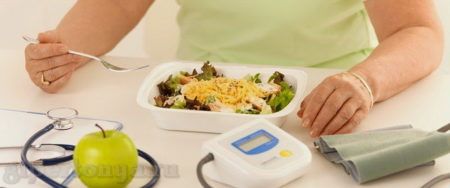
Normalizing blood pressure with food
Hypertension at the initial stage often occurs without clinical manifestations. The patient feels normal and is not aware of pathological processes in the body. Many people attribute malaise and slight deterioration in well-being to fatigue after a hard day at work. The patient may not be aware of the disease. Problems with blood pressure are often discovered during a routine examination, as well as during exacerbations.
A hypertensive crisis is accompanied by more severe symptoms, which often become a cause of concern. After eating, your blood pressure rises, your pulse quickens, and headaches occur. The following clinical manifestations can be identified that indicate high blood pressure:
- rapid fatigue even with minor loads;
- disturbed sleep, lack of deep phase;
- soreness and pressing sensations in the back of the head;
- dizziness even when sitting;
- nosebleeds;
- pain and tightness in the chest;
- dyspnea;
- numbness of legs and arms;
- swelling.
Clinical manifestations of hypertension occur in the afternoon and late afternoon. To maintain normal blood pressure, it is necessary to take regular measurements and readings.
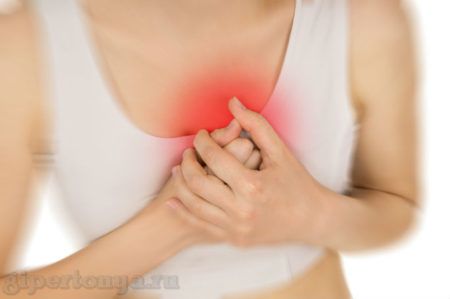
Pressing chest pain is a dangerous symptom
There are various reasons that lead to an increase or decrease in blood pressure. After smoking, blood pressure increases by 10 mm. rt. Art. Heavy physical and sports activities, regular stressful situations, and poor lifestyle lead to sharp jumps.
Risk factors lead to the rapid development of pathology. Hypertension in most cases occurs due to a genetic predisposition. The following reasons can be identified:
- Excess weight. With obesity in the body, the load on the work of the heart and the walls of blood vessels increases;
- Large amounts of salt in food. Many people do not pay attention to the deficiency of calcium and magnesium in the body. As a result of such a pathological disorder, the condition of the vascular walls worsens;
- Abuse of bad habits. Smoking increases the likelihood of blood clots several times over. After smoking a cigarette, the walls of blood vessels narrow greatly;
- Sedentary lifestyle. In the body, blood circulation through the veins decreases, vascular tone decreases;
- Nervous tension, regular stress. These negative factors lead to a sharp increase in blood pressure. When a person calms down, the condition returns to normal. With frequent and prolonged stress, hypertension develops;
- Short-term increase in blood pressure. Many people react strongly to medical workers who wear white coats. As a result, their blood pressure rises sharply, which returns to normal on its own.

Secondary hypertension manifests itself as a result of the progression of other diseases in the body. The most common reasons:
- improper kidney function;
- liver pathologies;
- failure in the endocrine system;
- disruption of brain function;
- diabetes.
Only by eliminating the cause of high blood pressure can the indicator be normalized for a long time. To do this, you need to seek help from a doctor and undergo a comprehensive examination.
Many patients ask doctors and want to know whether blood pressure decreases or increases after eating. Scientists regularly conduct research, so they have identified a pattern in the increase in blood pressure. The following factors can be identified:
- Alcoholic drinks. They contain ethanol, which, when ingested, can dilate blood vessels. Over time, they narrow, so spasms occur. They can increase blood pressure and density;
- High-calorie foods take a long time to digest in the gastrointestinal tract, so blood pressure rises after eating. During the breakdown of carbohydrates and fats, the normal heart rate changes, as well as blood density;
- It is important to eat more fiber and include it in your daily diet. With its deficiency, water is retained in the body. Fiber helps improve intestinal motility and speed up the process of food digestion;
- When proteins are broken down in the body, the amount of amines begins to increase. They cause sudden increases in blood pressure. These components are found in fried meats, sausages, overripe bananas or avocados.
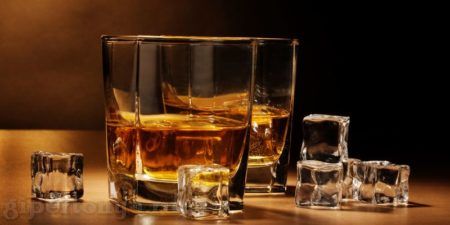
Particular attention should be paid to the amount of water drunk. A large amount of fluid in the body leads to a serious change and disruption of water balance. Water is retained in internal organs and soft tissues, so the walls of blood vessels are under serious stress. It is unacceptable to fast for more than five hours. After this time, the level of glucose in the blood decreases, so small blood vessels narrow, blood pressure increases, headaches occur and general health worsens.
Often people with blood pressure problems abuse fast carbohydrates. They rarely associate increased blood pressure with food intake. Sweets, carbonated drinks, baked goods and other foods can change the hormonal balance in the body. A large amount of food affects the performance of the digestive tract. There is excessive pressure on the inferior vena cava, which is located in the abdominal cavity.
Excessive salt intake alters the optimal levels of potassium and sodium in the body. Water retention occurs in the body and blood pressure increases. Hypertensive patients are advised to avoid or reduce the amount of salt they consume. Late dinners and snacks can fill the stomach at a time when it needs rest or is not working at full capacity. Additional stress occurs in the body, the functioning of the heart and blood vessels worsens.
Advice! Hypertensive patients are not recommended to eat fried fatty meat, smoked meats, salty and spicy foods.
Ice cream, strong coffee or tea, pies, sweets, buttercream and baked goods are not beneficial to health. They can be replaced with black bread, red pepper, cloves, onions and horseradish.
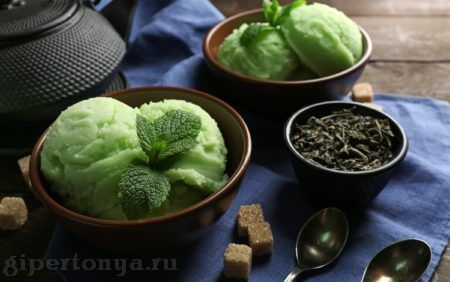
Ice cream increases blood pressure
To prevent blood pressure from rising, it is important to avoid alcoholic beverages. It's better to drink some red wine. It does not affect blood pressure levels, but you can drink no more than one glass 1-2 times a week. The real homemade form contains antioxidants, beneficial substances and nutrients. Alcoholic drinks can cause your heart rate to increase, a pressing pain in the eyes to occur, and a rapid pulse to occur. Table salt can increase blood pressure, so food should not be salted enough. If you have problems with blood pressure, it is important to exclude pickles from your daily diet, which cause vascular spasms and cause thirst due to their high salt content.
A person begins to actively drink water, increasing the volume of fluid in the body. The pressure begins to rise, so the person feels a pressing soreness in the temples. A large amount of water in the body causes edema, problems with the kidneys, blood vessels, liver and heart. Treatment should begin immediately. With proper therapy, improvement occurs within 4-5 days.
There is an opinion that sorrel and carrots cause a sharp jump in blood pressure. You should not completely exclude these foods from your daily diet. In small quantities they are not harmful to health.
Note! With hypotension, a person’s blood pressure drops sharply and they may feel dizzy, especially in old age.
Low blood pressure has a negative impact on your well-being, so you should consult a doctor. Some patients are prescribed medication and normal nutrition. There is a group of products that help lower blood pressure. You can include in your daily diet foods that help strengthen the heart muscle and blood vessel walls if the patient is diagnosed with postprandial hypotension (excessive decrease in blood pressure after eating):
- Green tea. Scientists have proven that it helps lower blood pressure. It is better to drink it for breakfast and follow a diet;
- Lemon. It contains potassium, which helps in the regulation of body fluids, and magnesium relaxes the arteries. Lemons also contain flavonoids, which improve the condition of blood vessels and normalize blood pressure;
- Chokeberry. It contains substances that actively dilate capillaries and blood vessels;
- Ginger. It contains a huge amount of useful nutrients. The composition contains substances that, when entering the body, thin the blood and relax the muscles. As a result, blood pressure gradually decreases.
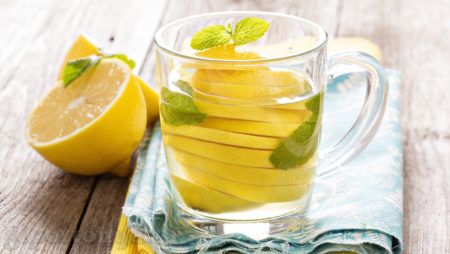
People who suffer from high blood pressure should include fresh skim milk in their diet.
Important! If a person notices that there is a disruption in blood pressure after eating, immediate action must be taken.
To do this, you need to consult a doctor for advice. It will help you adjust your diet. Sudden changes in pressure require a limitation in the volume of fluid consumed. You should drink no more than one liter of water per day. With a sharp drop in blood pressure, the patient’s well-being sharply worsens, pulsation may decrease, and limbs may become numb.
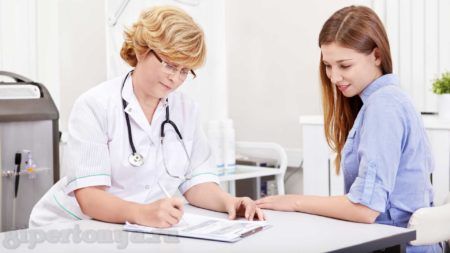
If there are sudden changes in blood pressure, it is important to consult a doctor
This volume includes liquid food, tea and compotes. It is recommended to replace strong morning tea and coffee with slightly sweet juice or herbal tea. You need to eliminate bad habits from your life. Diet plays an important role. If you have high blood pressure, you need to eat small portions every 2-3 hours. Thanks to this, the body is not overloaded and digests food easily and freely.
Treatment of older people is carried out only in inpatient settings. Their pulse and heartbeat are regularly measured. Overeating is strictly prohibited. If a patient is diagnosed with extrasystole, there is a high risk of developing coronary heart disease, cardiosclerosis, dystrophy and inflammatory process in the body. During pregnancy, women can also experience a sharp increase in blood pressure, increased heart rate, and tachycardia. If such symptoms occur, urgent therapy under medical supervision is indicated.
It usually doesn’t even occur to us to associate food intake with an increase in blood pressure, although there is certainly a certain relationship between these factors. And anyone who has discovered this unpleasant symptom in themselves asks the question - what to do if your blood pressure rises after eating?
Arterial hypertension or increased blood pressure is not only an unpleasant symptom, but also quite formidable. But, unfortunately, sometimes we do not pay attention to our blood pressure at all, and until a certain age, even if it is quite high, we simply do not seek medical help. Let me make a reservation right away that arterial hypertension is already a diagnosis made by a doctor, and we will not dwell on this. Let's understand the prerequisites leading to the occurrence of the disease. Diet plays a huge role in our health, and quite often blood pressure rises after eating, especially if the diet contains high-calorie foods, spices, and smoked meats.
Common situations: blood pressure increases after a sleepless night, heavy physical exertion, after stress, after eating. A person feels a headache localized in the occipital or temporal region, dizziness, sometimes nausea, tremors of the upper extremities, rapid heartbeat, and shortness of breath. What to do if your blood pressure rises after eating is not necessarily decided by your doctor; there are several simple techniques that will help you cope with this unpleasant condition.
- You should carefully analyze your diet. Surely it contains smoked foods, fried foods, an increased love for hot or spicy seasonings, and a large amount of table salt. All of these foods should be excluded from your diet forever - they all contribute to the development of hypertension. You should also exclude alcohol from your diet and limit the amount of liquid you drink. For a person suffering from increased blood pressure after eating, it is enough to drink 1.5 liters of liquid per day, including soups and all kinds of drinks in this amount. Drinking with caffeine - strong natural coffee, black tea also contribute to the development of hypertension, so if possible, replace them with juices and fermented milk products;
- Change your diet. You need to eat often, but in small portions. Let your daily diet be divided into 5-6 meals, and the amount of food consumed per meal is 200 - 250 grams. Give preference to foods low in cholesterol. Eat boiled sea fish, it is rich in Omega-3 fatty acids, which dissolve “bad” cholesterol;
- Don’t overeat, excess weight is a bad ally, and then you won’t have to ask yourself the question of what to do if your blood pressure rises after eating?
If you monitor your health and follow all the recommendations described above, but your blood pressure still gives you surprises, you may need specific drug treatment, which only a doctor can correctly prescribe. You will be asked to undergo a medical examination, based on which the doctor will make a conclusion about the use of antihypertensive drugs.
Sources:
https://pro-davlenie.ru/pitanie-i-dieta/povyshaetsya-davlenie-posle-edy https://lechidavlenie.ru/profilaktika/2927-posle-edyi-podnimayutsya-davleniya.html https://teamhelp. ru/kardiologiya/chto-delat-esli-posle-edy-podnimaetsya-davlenie.html ]]>
Post Views: 153
Prerequisites for diseases
The body consumes oxygen for digestion; foods containing fat take longer to digest and increase blood viscosity. Frequent consumption of harmful foods leads to increased heart rate and high blood pressure.
The high content of fast carbohydrates in sweets and baked goods causes changes in hormonal levels and affects blood pressure, the prerequisites for its decrease after eating are:
- Parkinson's and Alzheimer's diseases;
- age-related changes;
- endocrine disorders;
- mental problems.
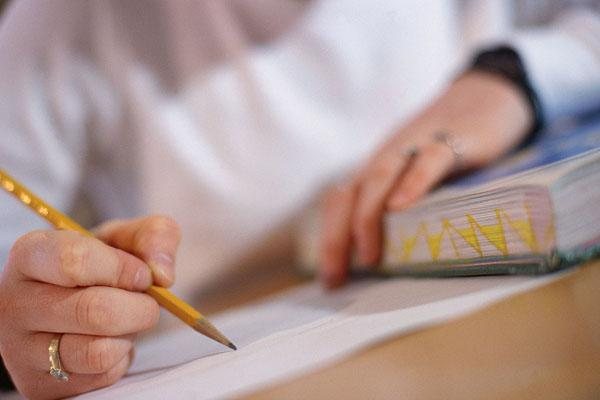
If there is a frequent increase (decrease) in blood pressure associated with certain foods, you should consult a general practitioner; the treatment he will prescribe and the diet recommended by the nutritionist will help eliminate the problem.
Treatment
Treatment of the disease includes changing dietary habits and a healthy lifestyle. If necessary, the doctor prescribes drug therapy.
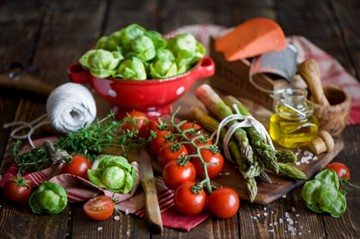
Since a decrease in pressure occurs after eating, the main recommendations are related to food consumption:
- spices should be consumed within reasonable limits;
- it is necessary to reduce the amount of quickly digestible carbohydrates in the diet;
- overeating should not be allowed;
- You should not fast for a long time.
If a sign is detected that a product leads to a decrease in blood pressure, it should be excluded from the menu. You need to avoid stressful situations, strengthen your immune system and include physical activity in your daily routine.
Treatment and prevention
First of all, it is necessary to eliminate stress and establish a daily routine. The body will begin to work better if you follow the following regimen:
- wake up at 6 o'clock in the morning;
- go to bed at 10-11 o'clock;
- engage in active mental and physical activity in the first half of the day;
- Spend the second half of the day at a moderate pace.
Diet is the best medicine for blood pressure problems. An experienced nutritionist will help organize proper nutrition, taking into account the individual characteristics of the patient.
